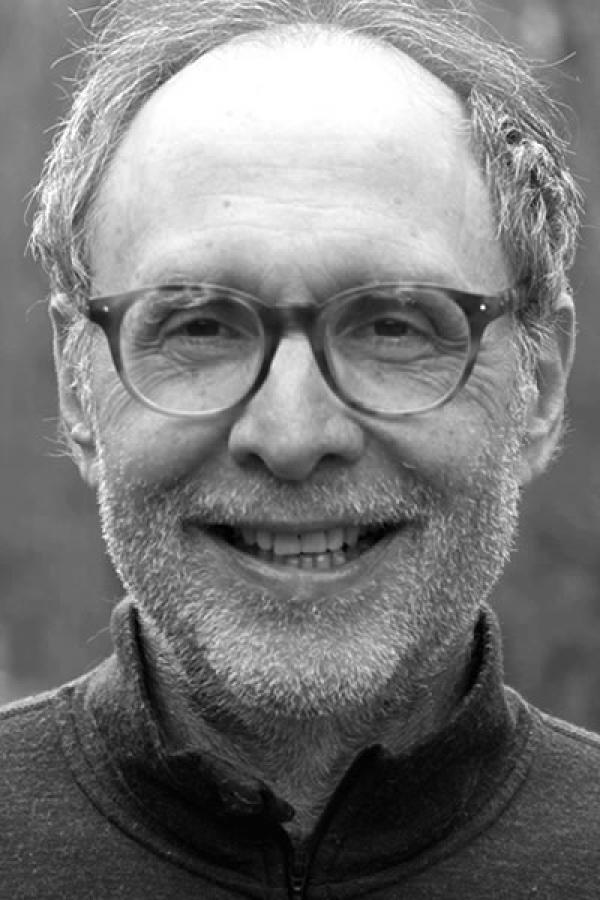Jeffrey Friedman (with Dzvinia Orlowsky)

Photo by Charna Meyers
Bio
Jeff Friedman has published six poetry collections, five with Carnegie Mellon University Press, including Pretenders (2014), Working in Flour (2011) and Black Threads (2008). His poems, flash stories, and translations have appeared in such journals as American Poetry Review, Poetry, Poetry International, Antioch Review, and The New Republic. He has won numerous awards, including two individual artist grants from the New Hampshire State Arts Council.
Dzvinia Orlowsky, Pushcart Prize recipient, translator, and Founding Editor of Four Way Books, has published five poetry collections with Carnegie Mellon University Press including A Handful of Bees reprinted as a CMUP Classic Contemporary edition, Convertible Night, Flurry of Stones, winner of a Sheila Motton Book Award, and most recently, Silvertone, for which she was named 2014 Co-Poet of the Year by the Ohio Poetry Day Association.
Orlowsky and Friedman's translation of Memorials: A Selection by Polish Poet Mieczslaw Jastrun was recently published by Dialogos.
Translators’ Statement
Co-translator Dzvinia Orlowsky and I began our collaboration on the poems of Mieczysław Jastrun six years ago driven by a desire to investigate the work of a Polish poet from Galicia. This had deep personal meaning for us as it connected each of us with our familial past. In his poetry, we explored images relevant to the universal quest for self-definition. First efforts brought us into a world perceived through a dream-like, elusive consciousness—fragmentary, and intense, evocative and stimulating—one that could not bear very much reality. The fragments themselves conceived an intuition.
Our initial translations were mysterious and dark, but as we delved deeper into Jastrun’s poetry, we found a startling clarity and precision, which led us to peel away the dense layers of language to get at the core of his vision, his metaphoric utterances. A voice emerged that thrived on abbreviation, on that which is both said and unsaid, highlighting the peripheries where greatest intensifications were felt.
We followed this method of working: Dzvinia converted a rough draft of each poem into English, and I transformed the literal version into poetry; from this point, we discussed each poem in depth, revising it, sometimes line by line, together. While doing this, we engaged in our own dialog and debate about translation, attempting to reconcile two very different visions. Arguments for keeping a translation that was close to the original meaning of the text were weighed against possible departures or variations on the text. Translation always implies interpretation, or one could say that translation from one language to another always assumes mistranslation and the possibility of misinterpretation We didn’t attempt a word for word reading of the poems; nor did we go in the direction of Robert Lowell in his terrific collection Imitations, imitating/simulating the poems of Pasternak, Rimbaud, Baudelaire, and many others while retaining his own unique distinctive voice. Our goal as translators was to capture Jastrun’s voice and the truth of his poetry in English.
"A Whole Night" by Mieczyslaw Jastrun
[Translated from the Polish]
Inside the oratory,
built from prayers to no one,
the nightingale takes a night off from singing,
and every sound is a form of silence.
That night has gone,
but it is still alive in the imagination,
legends waiting to be opened
on the doors and windows.
So many years gone,
and an uncountable number of stars
mark the timetable
for the past and the future.
Their light exists
even after they have disappeared.
We know only the elusive brilliant rays.
Now, at the moment we see them,
it is too late.
And so the singing ends
and the trees measure the passage of time
until, alone in the empty choir,
the nightingale again sings
and the petals of the sun, all at once, blossom.
Translated by Dzvinia Orlowsky and Jeff Friedman from Memorials: A Selection, published by © Dialogos Books, 2014
About Mieczyslaw Jastrun
A lyric poet and essayist of Jewish origin, Mieczyslaw Jastrun is considered to be one of the most important Polish poets in Poland to come out of the period between the two world wars. During his lifetime, he published a dozen volumes of poetry and translated French, Russian, and German poets (including Rilke) into Polish. His lyric poems investigate the subjects of philosophy and morality against the dark backdrop of the Holocaust and the wartime and post wartime occupation of Poland. Czesław Miłosz included Jastrun in his very important and influential anthology, Postwar Polish Poetry.

